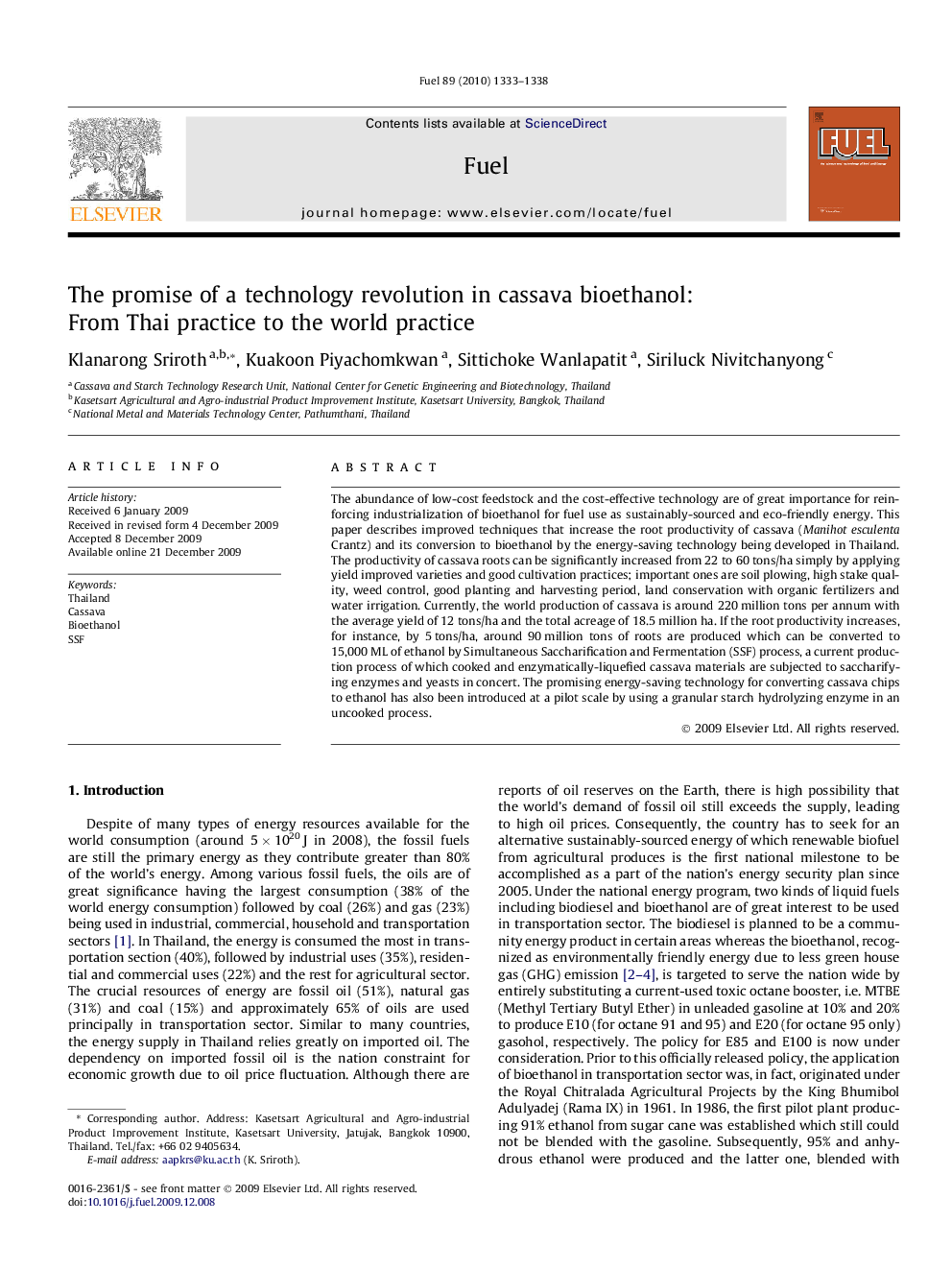| کد مقاله | کد نشریه | سال انتشار | مقاله انگلیسی | نسخه تمام متن |
|---|---|---|---|---|
| 207303 | 461213 | 2010 | 6 صفحه PDF | دانلود رایگان |

The abundance of low-cost feedstock and the cost-effective technology are of great importance for reinforcing industrialization of bioethanol for fuel use as sustainably-sourced and eco-friendly energy. This paper describes improved techniques that increase the root productivity of cassava (Manihot esculenta Crantz) and its conversion to bioethanol by the energy-saving technology being developed in Thailand. The productivity of cassava roots can be significantly increased from 22 to 60 tons/ha simply by applying yield improved varieties and good cultivation practices; important ones are soil plowing, high stake quality, weed control, good planting and harvesting period, land conservation with organic fertilizers and water irrigation. Currently, the world production of cassava is around 220 million tons per annum with the average yield of 12 tons/ha and the total acreage of 18.5 million ha. If the root productivity increases, for instance, by 5 tons/ha, around 90 million tons of roots are produced which can be converted to 15,000 ML of ethanol by Simultaneous Saccharification and Fermentation (SSF) process, a current production process of which cooked and enzymatically-liquefied cassava materials are subjected to saccharifying enzymes and yeasts in concert. The promising energy-saving technology for converting cassava chips to ethanol has also been introduced at a pilot scale by using a granular starch hydrolyzing enzyme in an uncooked process.
Journal: Fuel - Volume 89, Issue 7, July 2010, Pages 1333–1338